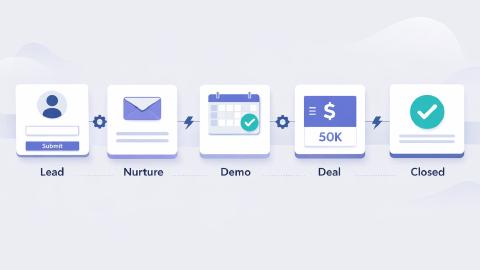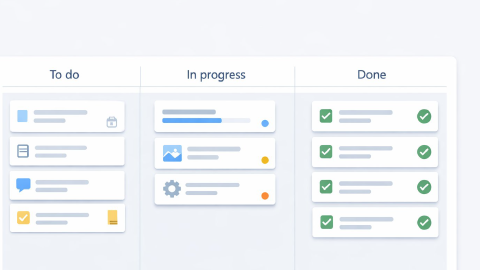15 Best Workflow Automation Software to Try in 2026
Tired of repetitive work? Use workflow automation software to help you streamline repetitive processes and save time in 2026.
If you’re tired of spending hours on repetitive tasks like filling out forms, sending follow-up emails, or moving data between apps, you’re not alone. Many people feel their workday gets eaten up by tasks that could easily be automated with the right tools.
Workflow automation software helps take care of those manual jobs so you can focus on the work that actually matters.
In this article, we'll cover the 15 best workflow automation software that you can use to save time in 2026. Let's dive in!
What is Workflow Automation?
Workflow automation is the use of software to create rules that handle repetitive tasks and processes automatically. Instead of manually completing the same actions over and over, you can set up workflows that run on their own once triggered.
This can apply to everything from managing documents to expanding text, making it easier to work faster and with fewer errors. If you're tired of doing the same things over and over, you can benefit greatly from automation these processes.
Types of Workflow Automation
Workflow automation can take many forms depending on the tasks you want to streamline. Some focus on moving data between tools, while others simplify communication or document handling.
Here are the main types to know:
Document workflow automation - Handles approvals, sharing, and signatures without manual steps.
AI workflow automation - Uses AI to summarize, analyze, and complete tasks automatically.
Marketing workflow automation - Manages campaigns, email sequences, and customer tracking.
Form-filling - Automatically fills out repetitive forms and submissions.
Data transfer - Moves information between apps or systems with no manual input.
Text expansion - Replaces repetitive typing with reusable snippets and text expansion.
What to Look for in Workflow Automation Software
Choosing the right workflow automation software depends on how well it fits your daily needs. Whether you’re automating documents, marketing tasks, or text expansion, the right tool should make your work easier and more efficient.
Here are the key things to look for when deciding which option is best for you:
Easy integration - The software should connect smoothly with the tools you already use.
User-friendly setup - Building and managing workflows should not require coding skills.
Scalability - The platform should grow with your team and support more complex workflows over time.
Security and compliance - Look for strong data protection, especially if you’re handling sensitive information.
AI features - Modern tools should offer smart automation like text generation, summarization, or predictive steps.
Cost-effectiveness - The pricing should fit your budget without limiting core functionality.
By focusing on these factors, you’ll find workflow automation software that helps automate workflows in a way that matches your team’s goals. Take time to evaluate these features and make sure you choose a tool that saves time while keeping processes consistent.
15 Best Workflow Automation Software
Repetitive work takes up too much time, and that's why workflow automation tools are more popular. They help you cut down on the repetitive work that eats up your time.
Without further ado, here's our list of the 15 best workflow automation software in 2026:
1. Text Blaze

First up on our list of the best workflow automation software is Text Blaze.
Text Blaze allows you to create smart text templates and insert them anywhere you work to automatically fill out forms, transfer data, automate repetitive typing, and much more.
For example, if you need to quickly fill out a repetitive form in Google Forms or in your CRM, all you have to do is type a keyboard shortcut and Text Blaze will do the rest for you!
With Text Blaze, you can automate form-filling on any website with dynamic templates!
With Text Blaze, you can:
Automate repetitive typing anywhere you work! Text Blaze works on Chrome, Windows, and Mac.
Streamline workflows like transferring data or filling out forms.
Create dynamic templates that you can customize for any situation. Use placeholders and advanced commands to create powerful templates.
Save time for free! Text Blaze is free forever, no licenses or upgrades necessary.
Join over 700,000+ others who are automating workflows with Text Blaze.
2. Zapier
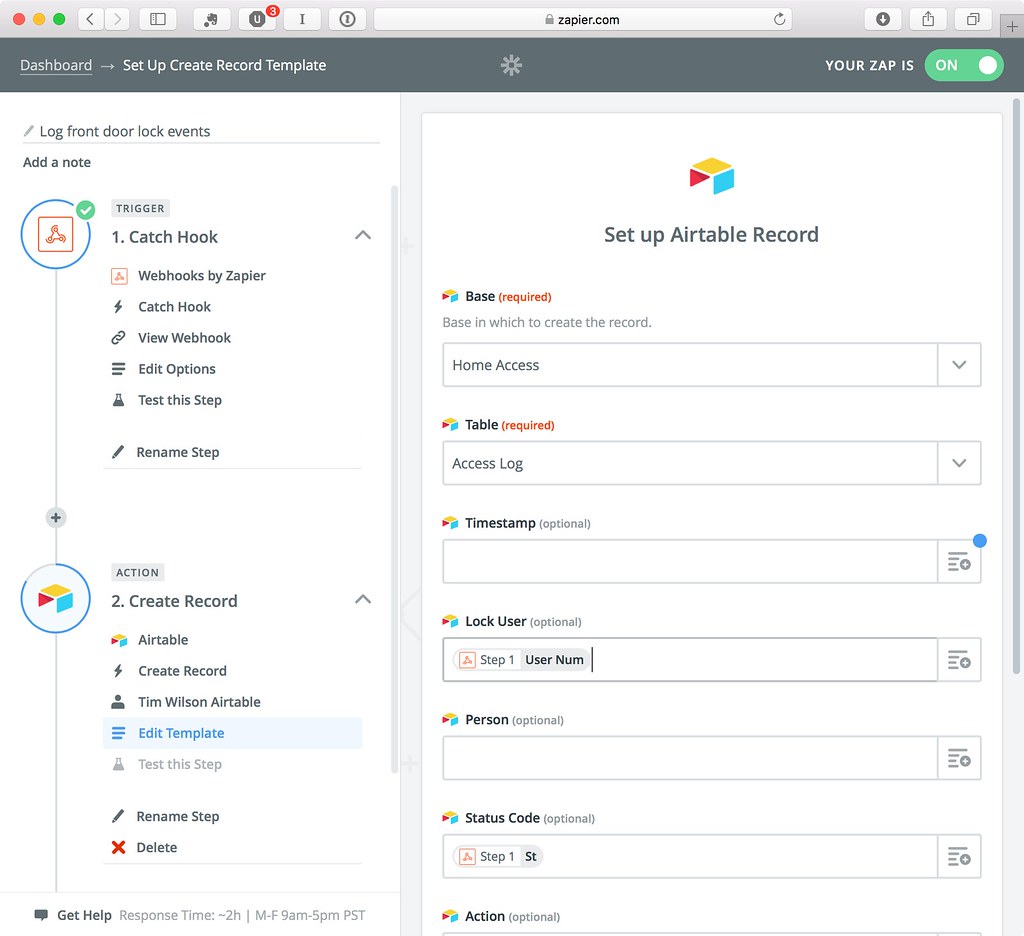
Zapier connects thousands of apps and automates data transfers between them. Users can create workflows (Zaps) without coding, enabling them to streamline processes like lead management, notifications, and reporting.
It supports integrations with CRMs, email services, and productivity apps. For teams managing multiple tools, Zapier becomes the central hub for automation.
3. N8N
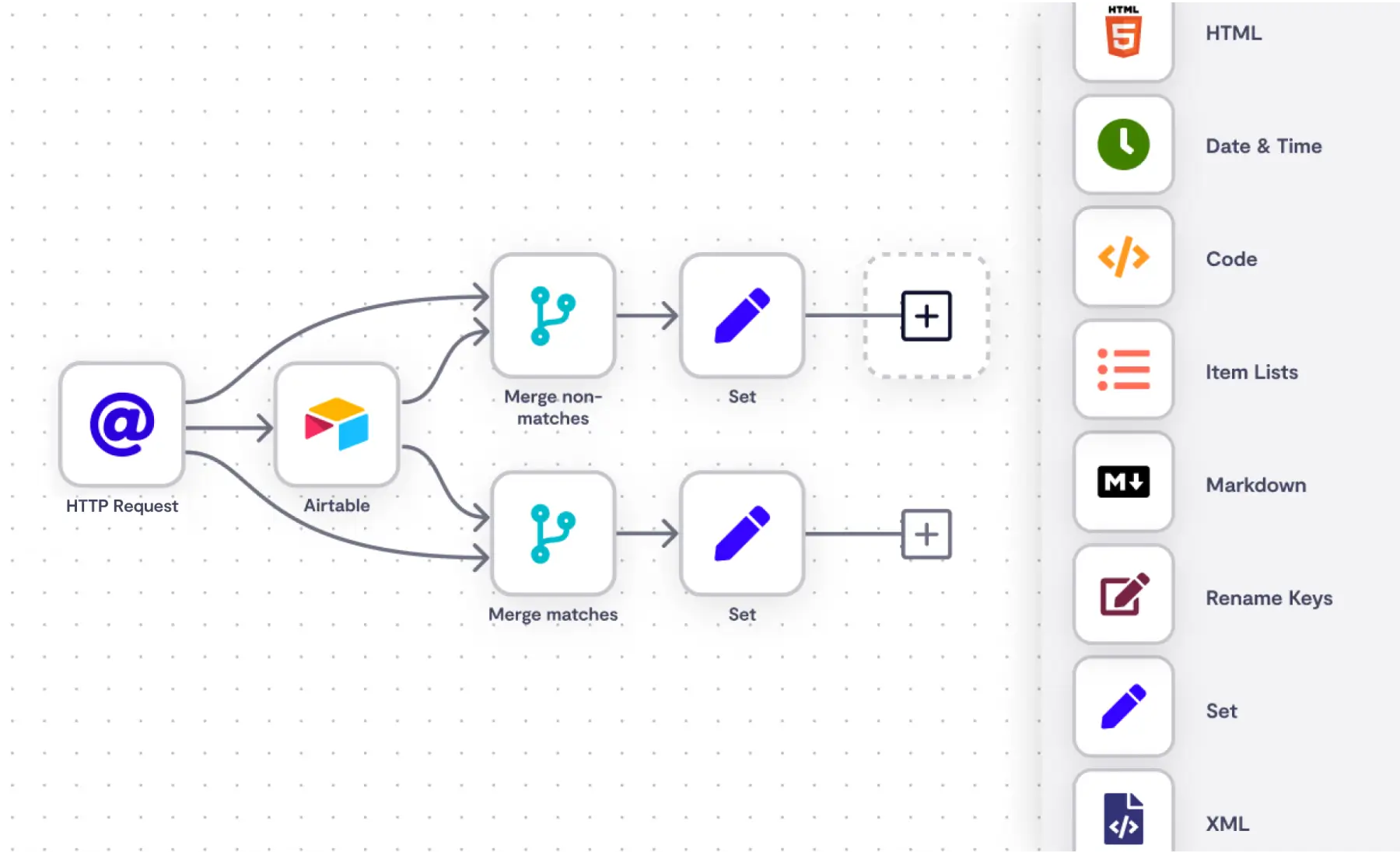
N8N is an open-source workflow automation software designed for flexibility and customization. Users can self-host and build workflows tailored to their needs.
It integrates with both APIs and databases, making it suitable for technical teams. With tools like N8N, businesses get more control over automation compared to cloud-only platforms.
4. Pipedrive
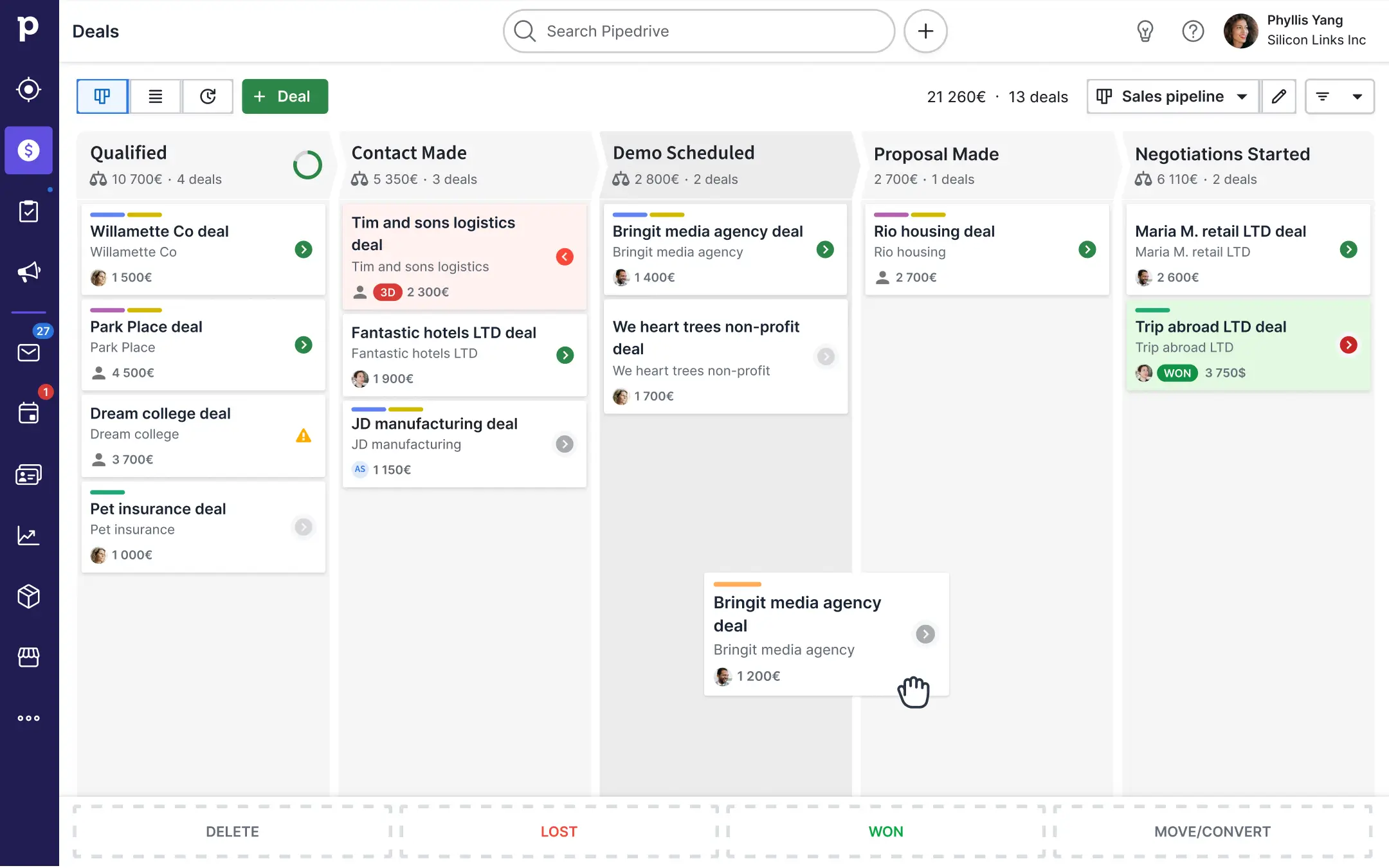
Pipedrive is a sales-focused CRM with built-in workflow automation. It helps sales teams automate repetitive tasks like follow-ups, pipeline updates, and deal assignments.
The platform integrates with email and calendar tools, keeping sales reps more productive. It’s ideal for teams that want a CRM and automation tool in one.
5. monday.com

monday.com is a project management tool with workflow automation features. Users can set triggers and actions for tasks, deadlines, and notifications.
Its visual boards make it simple to track team progress. Beyond project management, it also integrates with marketing, sales, and HR workflows.
6. Kissflow
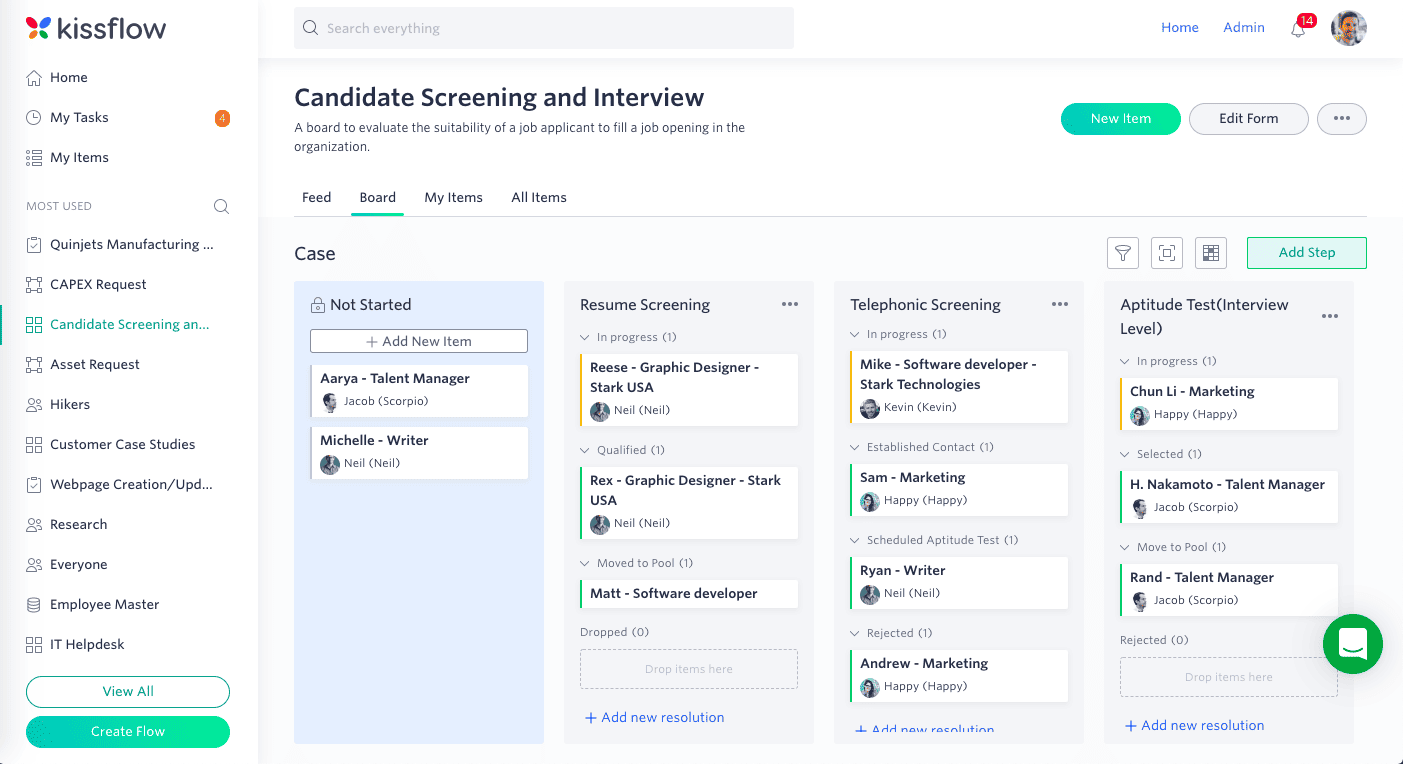
Kissflow specializes in automating business processes across departments. It allows users to design workflows with drag-and-drop functionality.
Teams can use it for approvals, onboarding, procurement, and project tracking. Its built-in reporting helps businesses monitor performance.
7. Make
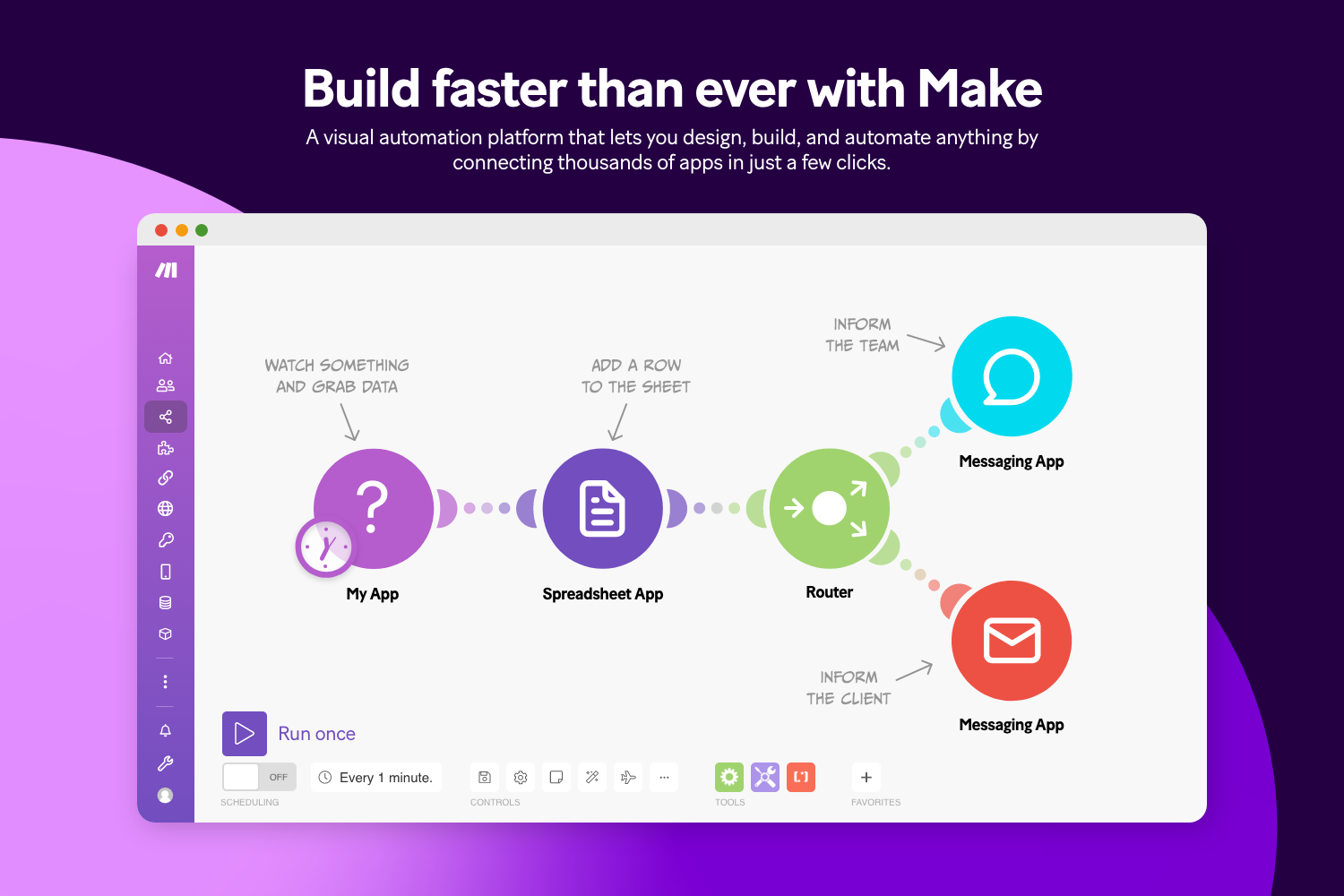
Make (formerly Integromat) lets users build advanced automations with visual workflows. It supports conditional logic, branching, and complex multi-step processes.
Businesses use tools like Make to connect tools and automate data movement at scale. It’s popular for IT and operations teams that need more advanced workflows.
Join over 700,000+ others who are automating workflows with Text Blaze.
8. PandaDoc
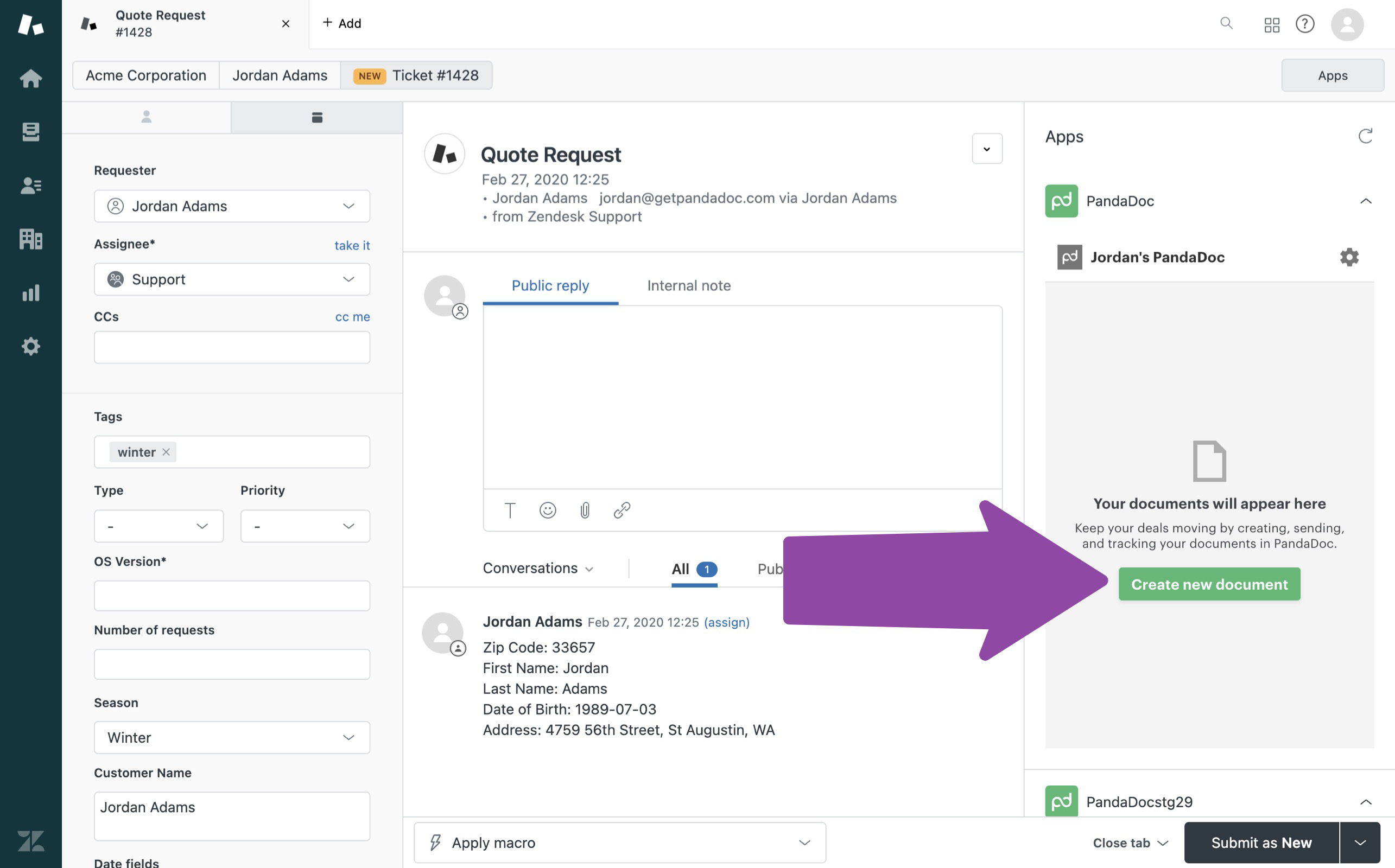
PandaDoc automates document creation, approvals, and e-signatures. Teams can generate proposals, contracts, and agreements with templates.
It integrates with CRMs like HubSpot and Salesforce, making it easy to track deals. For businesses dealing with frequent paperwork, PandaDoc speeds up the document workflow automation process.
9. Lindy AI
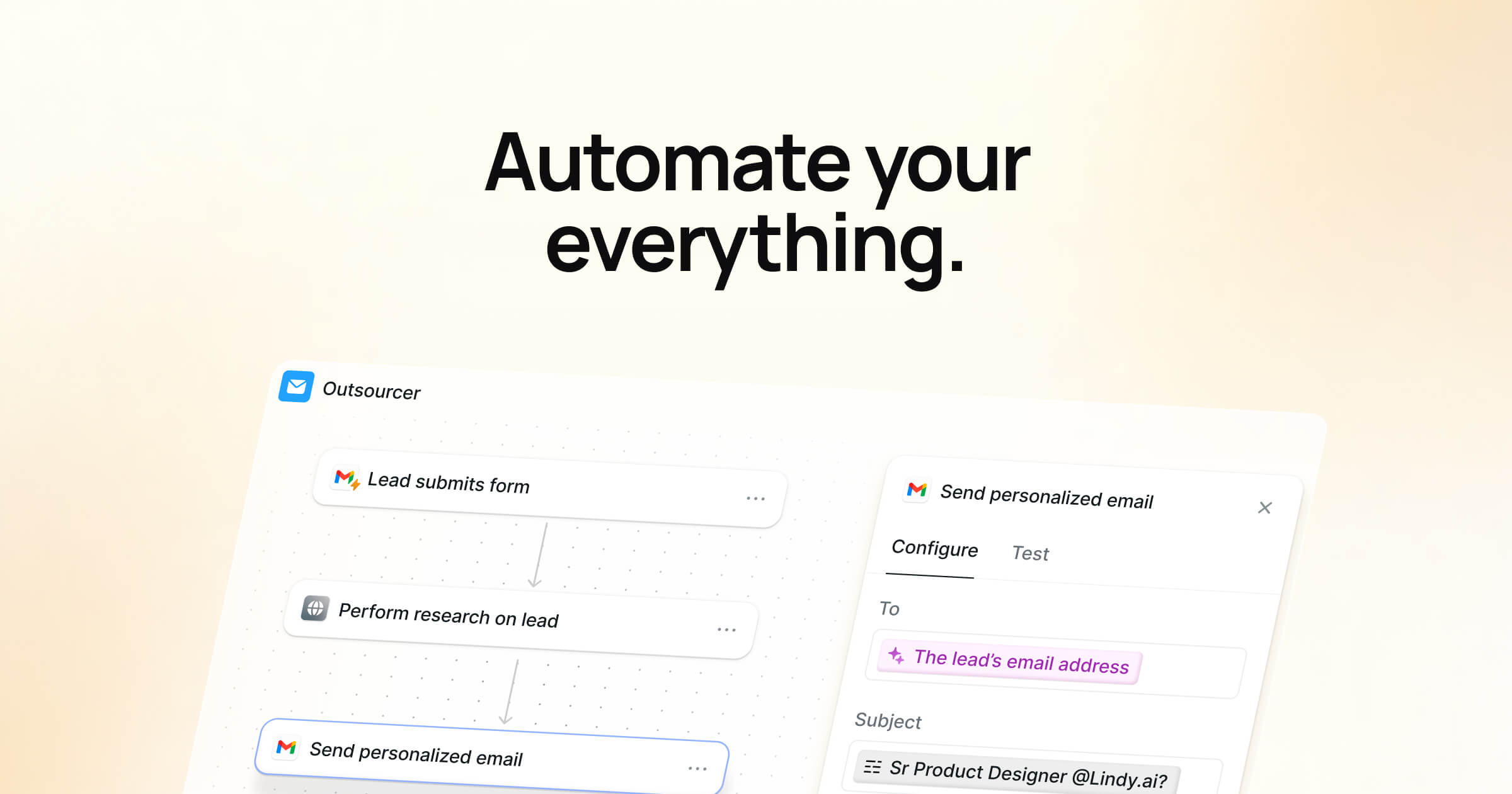
Lindy AI is designed to automate workflows with AI-driven assistants. It helps teams manage scheduling, emails, and task execution. The tool adapts to different workflows by learning from user activity.
It’s useful for professionals who want an AI partner to reduce routine work.
10. Katalon
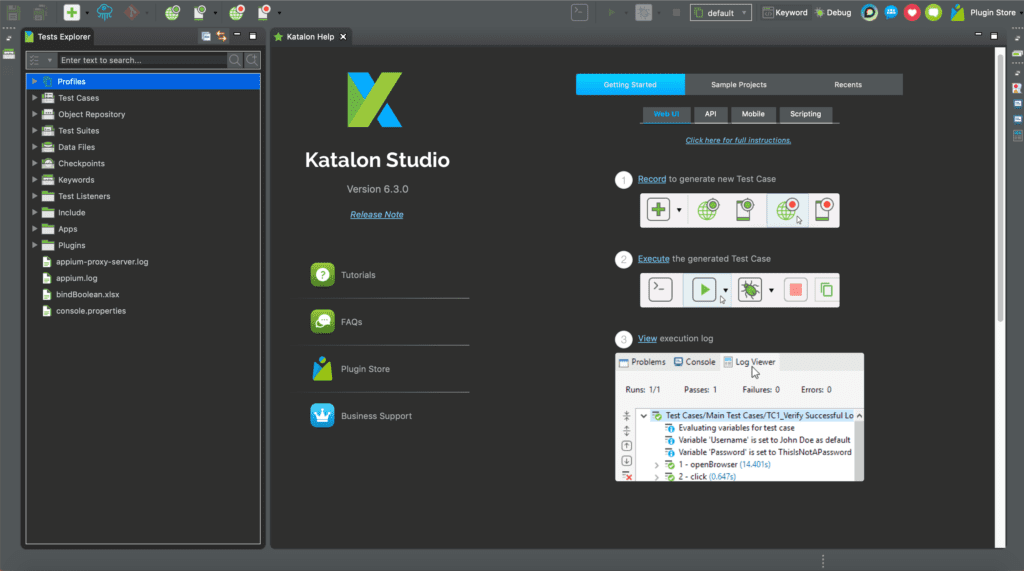
Katalon focuses on test automation for software development teams. It allows developers and QA teams to build, run, and manage test workflows.
By automating testing, teams can reduce errors and ship products faster. It supports both web and mobile testing environments.
11. Fillout
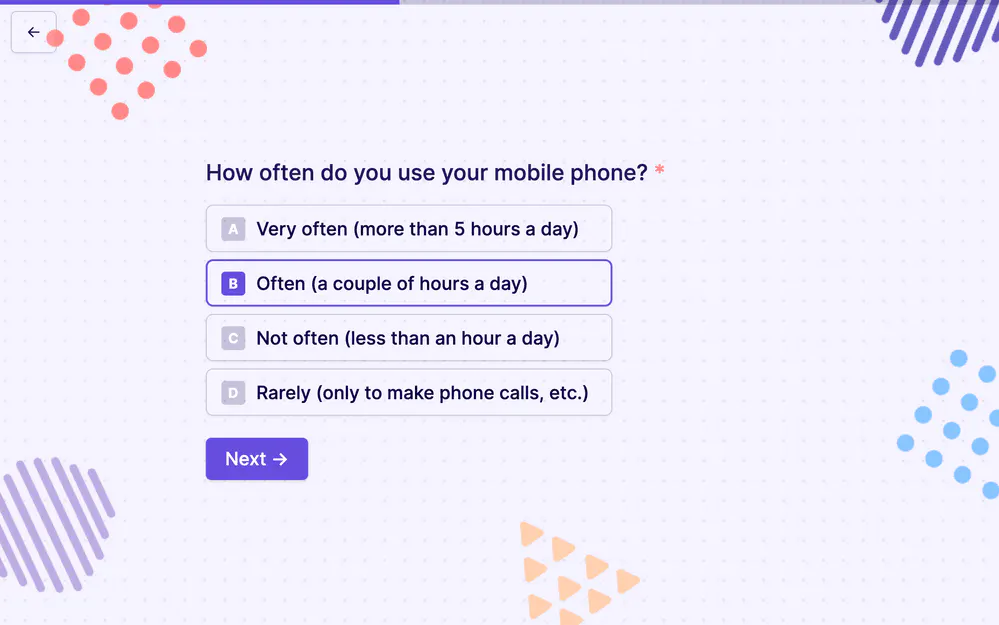
Fillout simplifies form creation and automation. It helps teams design forms, capture data, and automatically send information to CRMs, spreadsheets, or databases.
With automation rules, data flows seamlessly without manual handling. It’s a strong option for lead capture and customer onboarding.
12. IFTTT
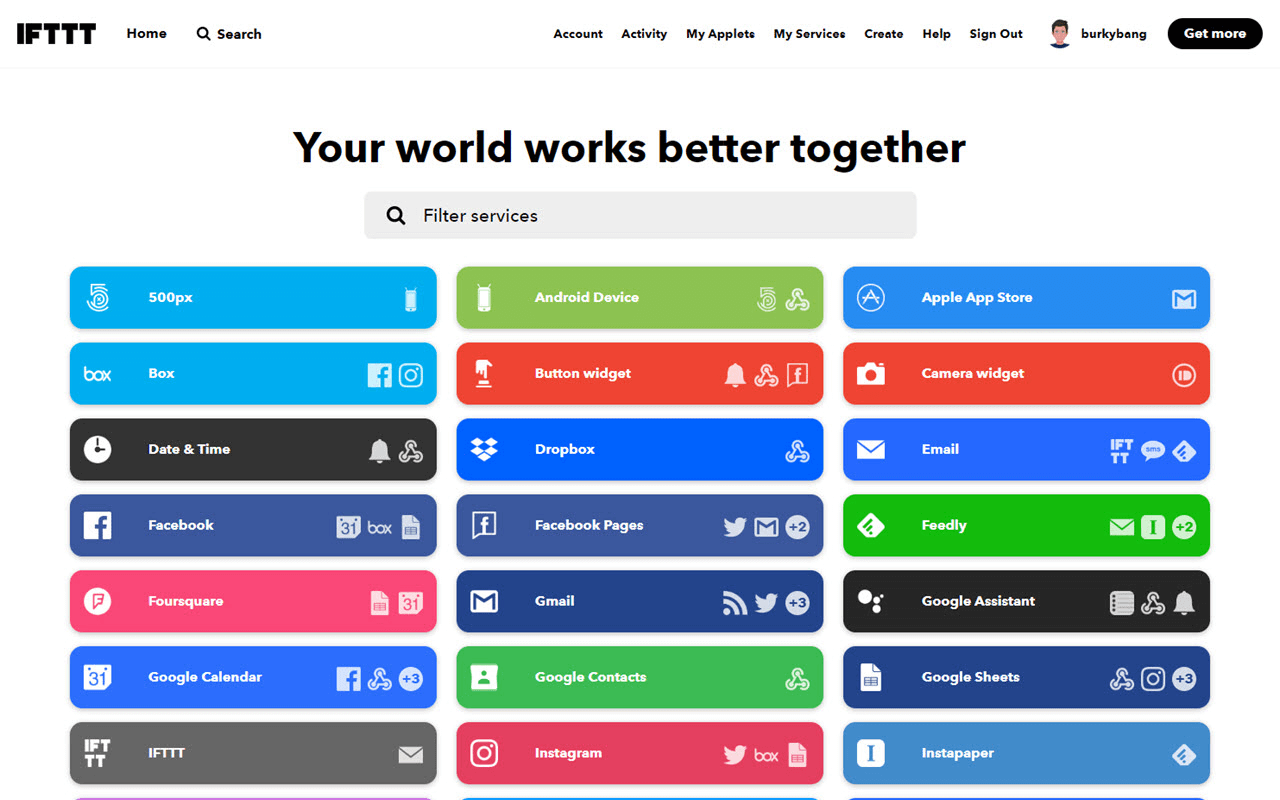
IFTTT (If This Then That) lets users automate workflows by linking apps and devices. It’s simple to set up, making it a good choice for personal and business tasks.
Software like IFTTT are especially popular for smaller teams and individuals, as they offer simple but useful automation features.
13. Workato
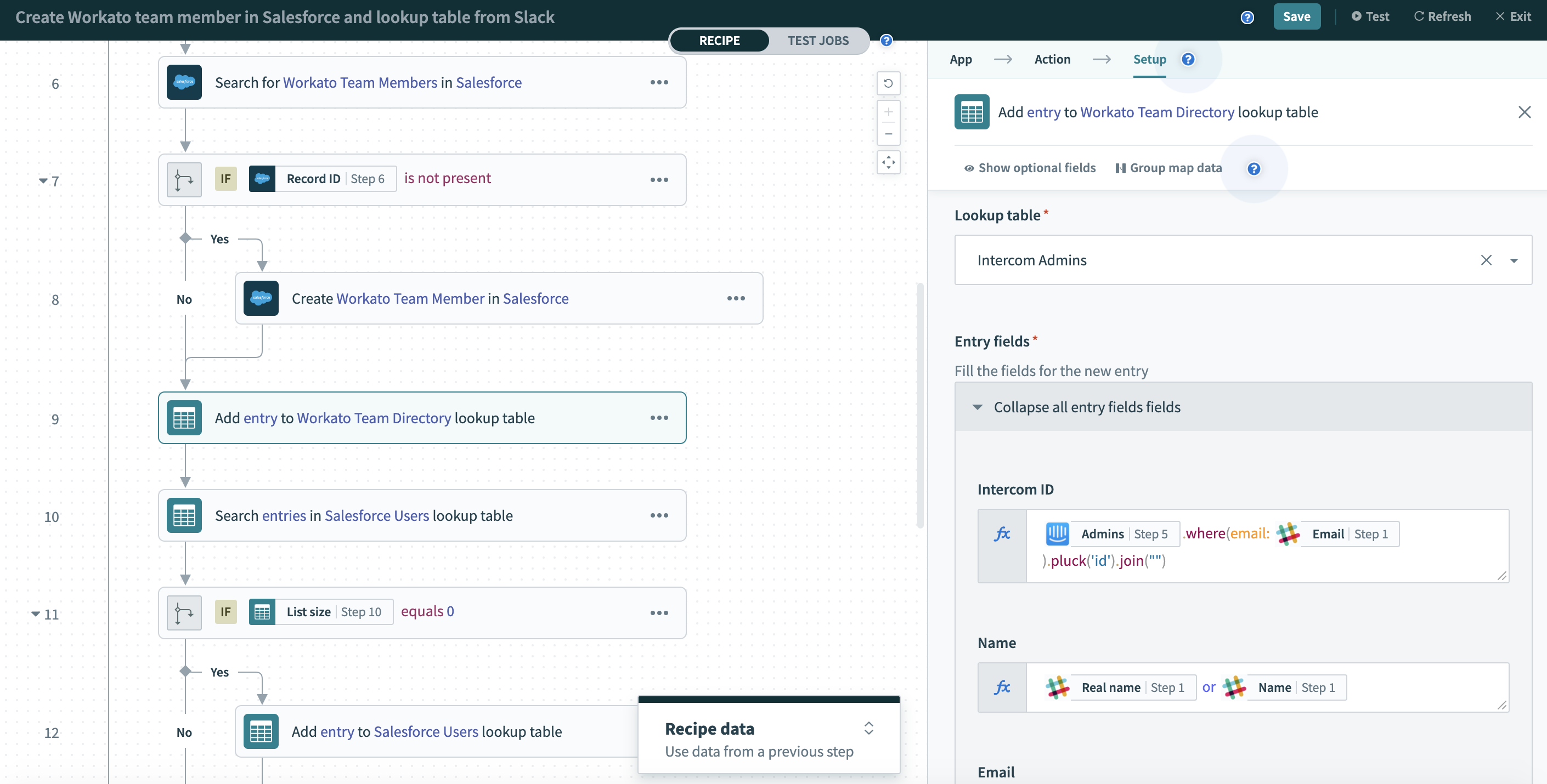
Workato is an enterprise-focused automation platform. It connects apps, databases, and APIs to streamline complex workflows.
With built-in AI features, it helps automate data entry, system updates, and reporting. Large organizations use Workato to align automation across departments.
14. Magical
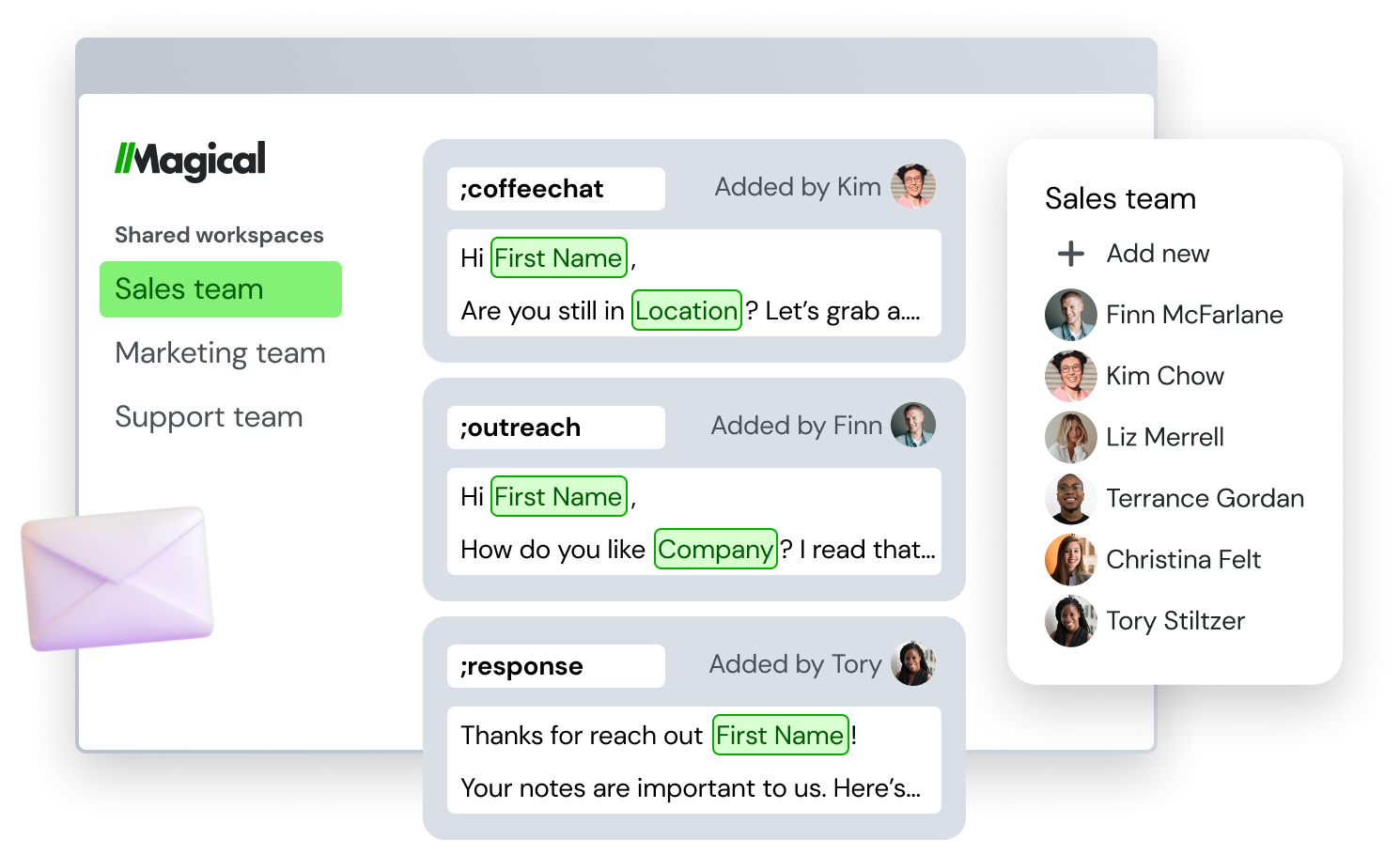
Magical helps users automate repetitive text and form-filling tasks. It works directly in browsers, making it simple to capture and reuse data.
Teams can create shortcuts for email replies, customer responses, and sales notes. Tools like Magical are solid options for professionals looking for text-focused automation.
Join over 700,000+ others who are automating workflows with Text Blaze.
15. Wrike
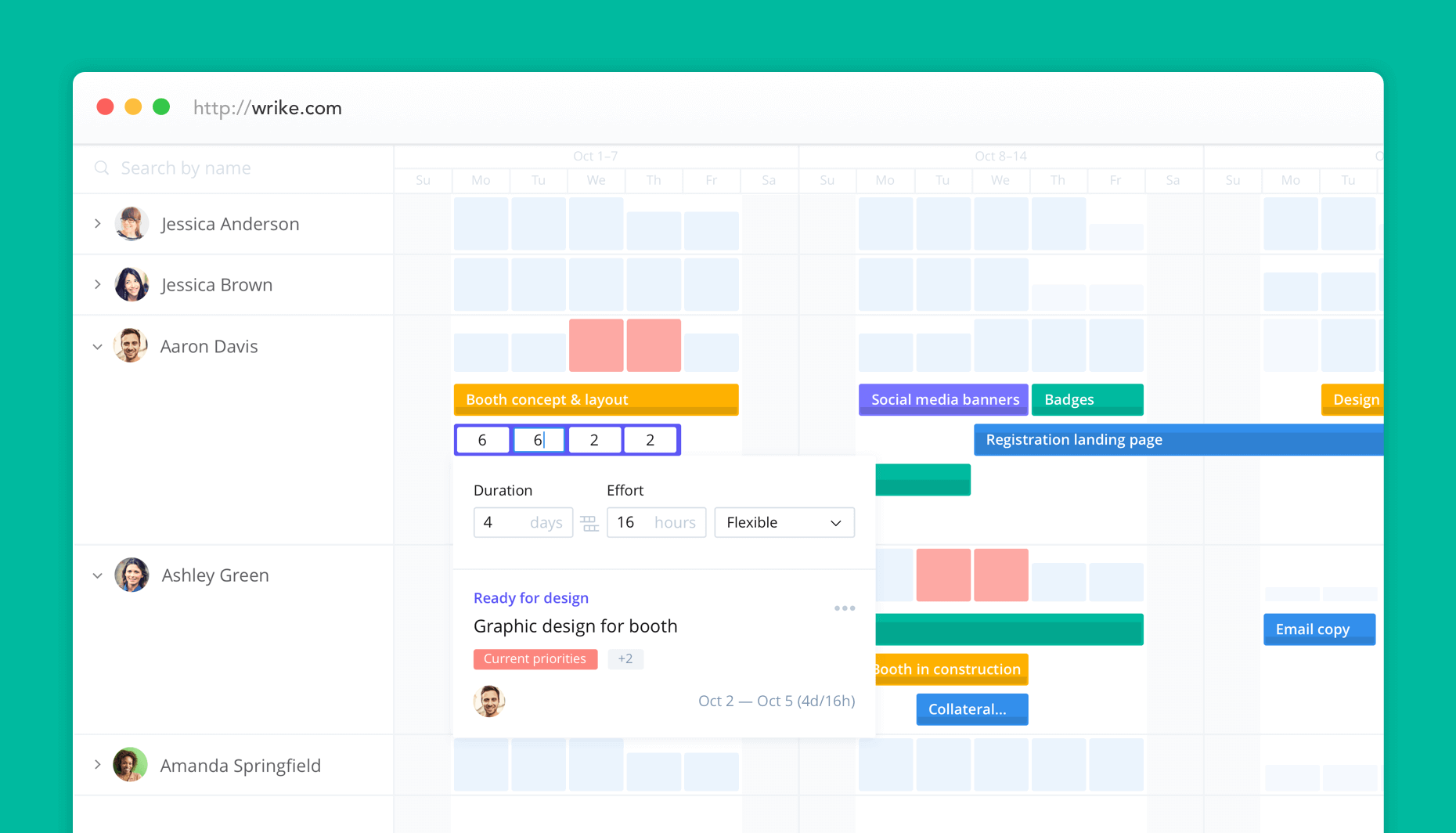
Wrike is a project and task management tool with automation features. Users can create rule-based workflows for assigning tasks, setting deadlines, and sending reminders.
It integrates with productivity apps like Slack and Google Workspace. Wrike helps teams save time on coordination while keeping projects moving forward.
Find the Right Software to Automate Your Workflows
The right workflow automation software can help you cut down on repetitive tasks, keep data moving smoothly, and make team collaboration easier. From text expansion to document approvals and complex data transfers, each tool on this list offers different ways to simplify work.
We recommend testing a few of these options to find the one that fits your daily processes and helps you save time in 2026.
To recap, our suggestion for the best workflow automation software is Text Blaze. Text Blaze is the best workflow automation tool that helps you eliminate repetitive typing, streamline form-filling and data transfer, and save time anywhere you work! Plus, it is free forever! Give it a try today!



